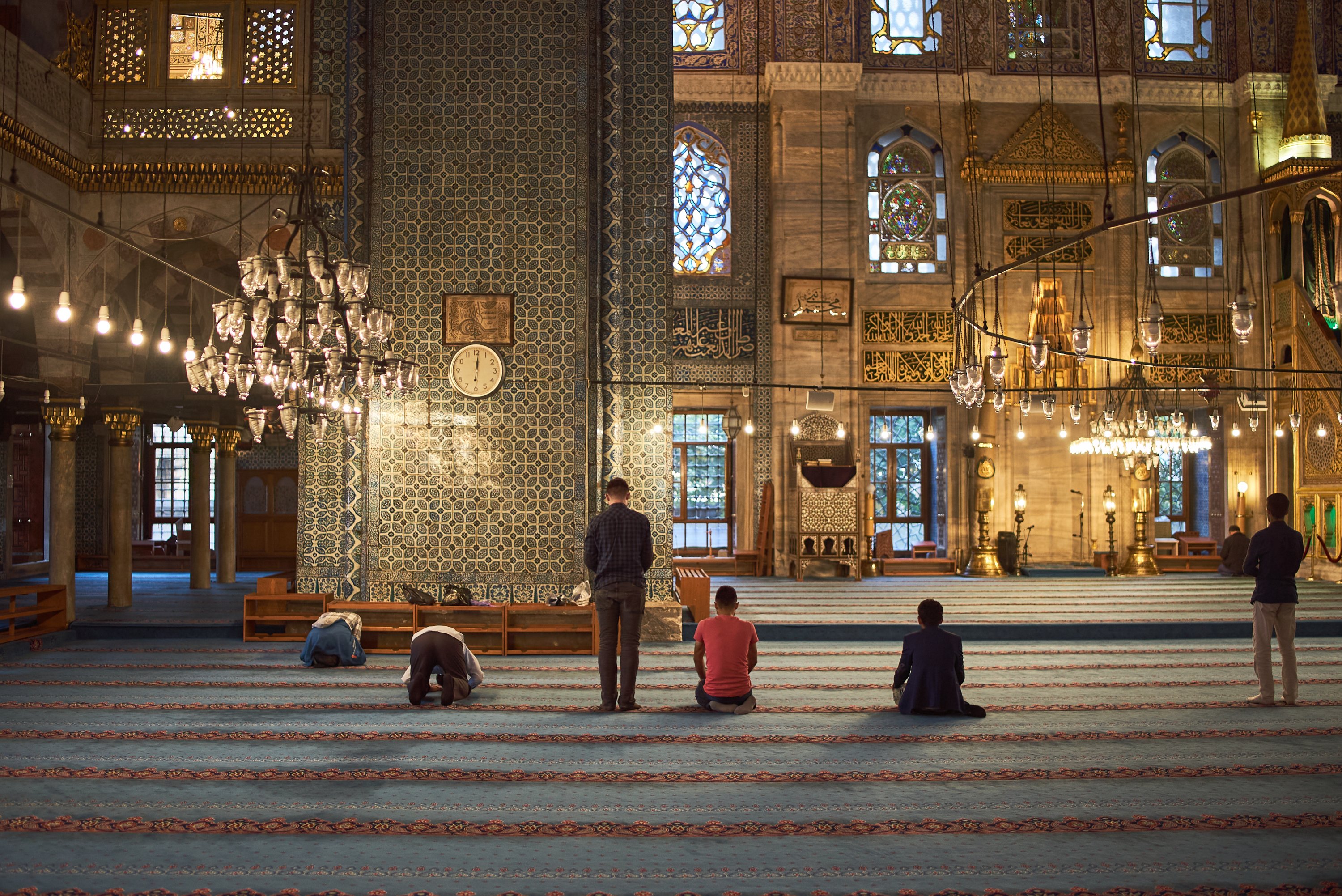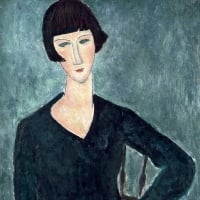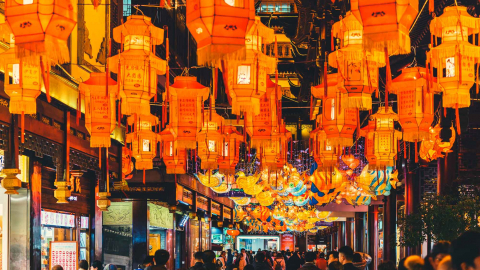Due to the Covid-19 outbreak, as the Ramadan fasting month began, Muslim communities around the world are grappling with an unpleasant paradox: being forced to change their way of celebrating the holiday to comply with social distancing at a time when gathering together is considered sacred, because Ramadan is traditionally a time for family and community gatherings, repentance, charitable activities, and collective prayer for Muslims.
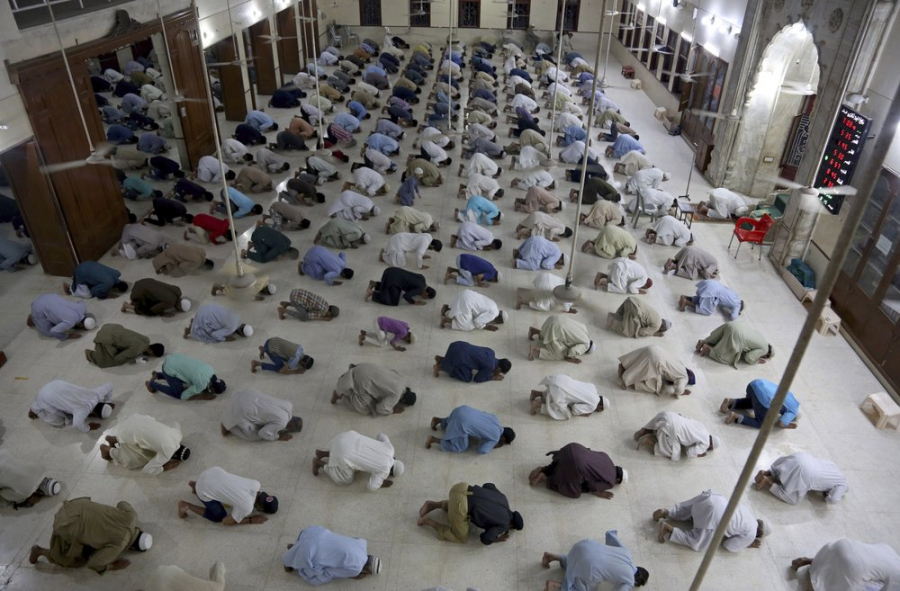
People attending prayers must maintain social distancing at a mosque in Karachi, Pakistan, on April 19.
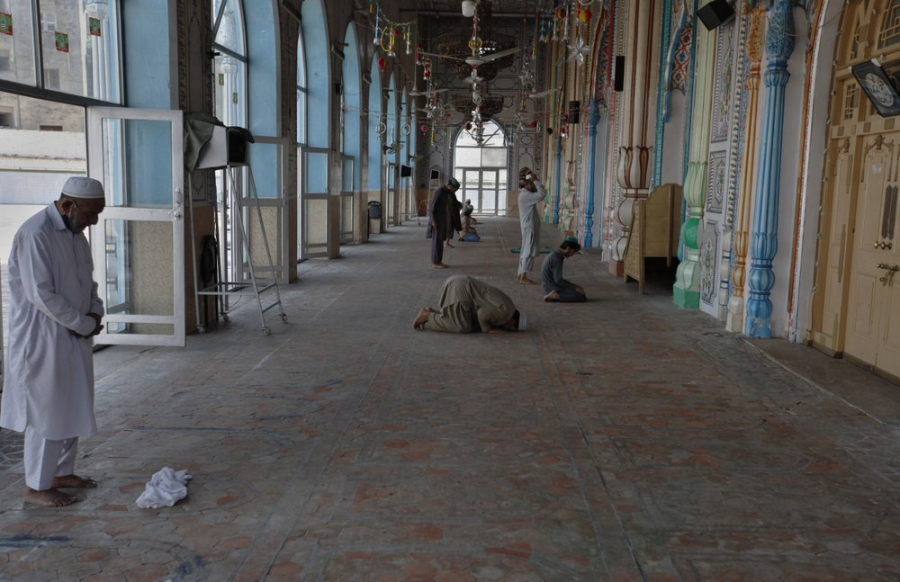
Prayer service at a mosque in Rawalpindi, Pakistan, on April 21.
Ramadan is the ninth month of the Islamic calendar. During this time, Muslims typically return to their hometowns to reunite with family, fast from sunrise to sunset, and intensify their prayer and charitable activities. Usually, during Ramadan, after many hours of fasting, when the sun sets, people gather around the table to share food.
Worshippers line up at mosques to participate in nighttime prayers that last for hours. This year, amidst the widespread pandemic, many Muslim countries have implemented lockdowns or social restrictions, preventing the full celebration of Ramadan. Many countries have closed mosques, banned large prayer gatherings; people are staying home instead of going to mosques and sharing food with family instead of gathering in large groups around tables.
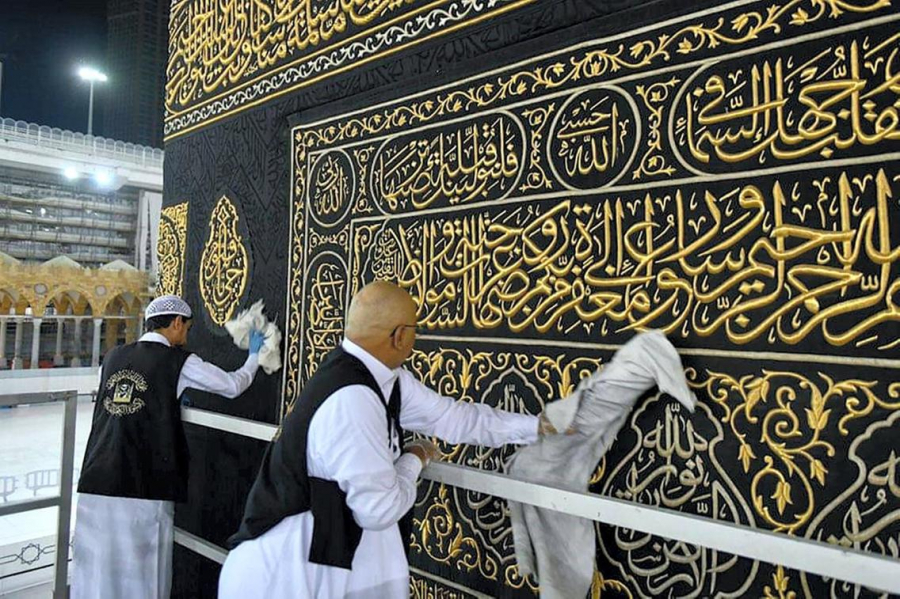
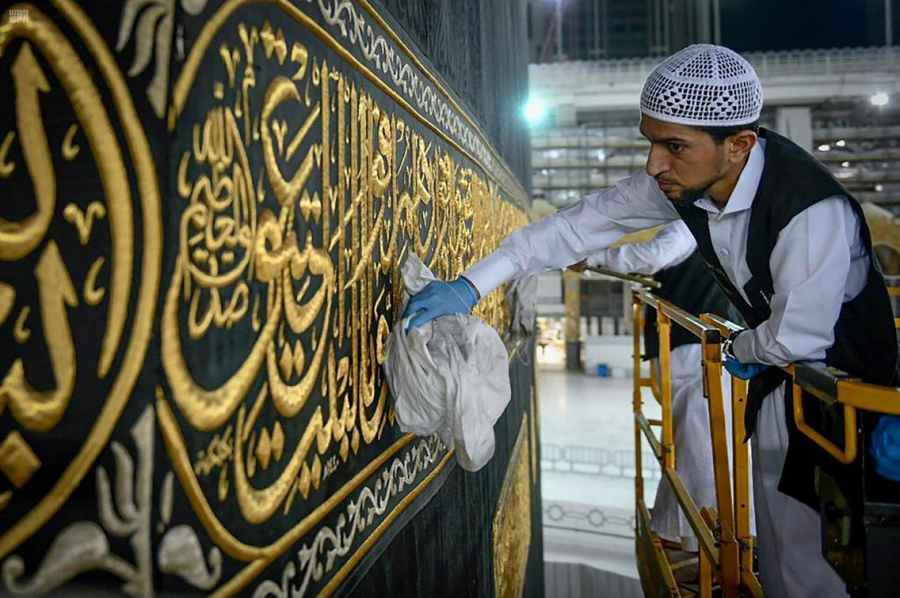
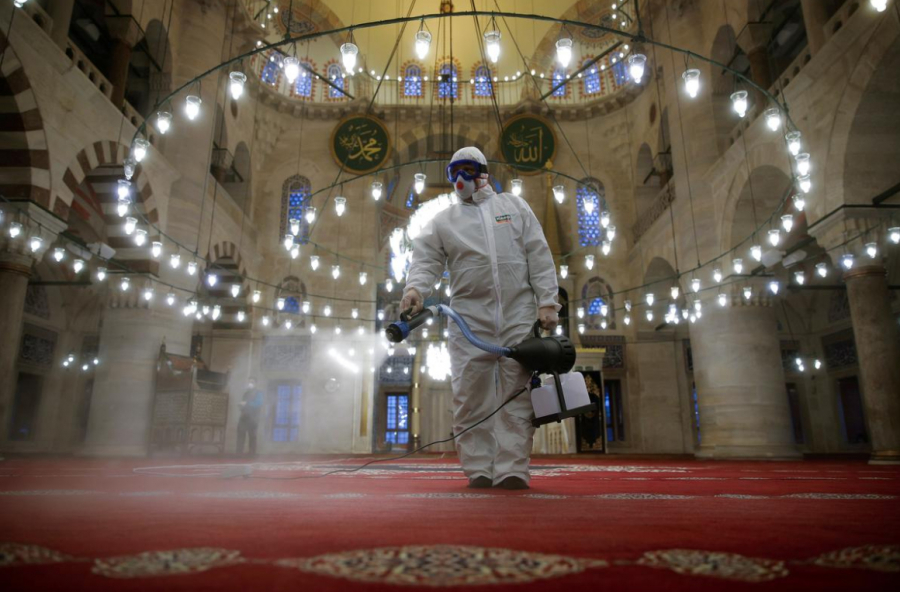
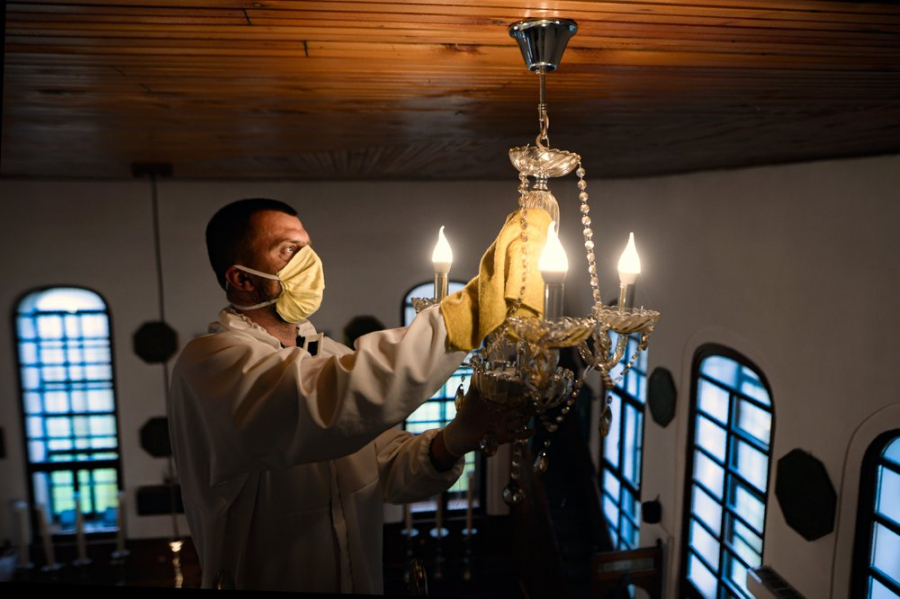
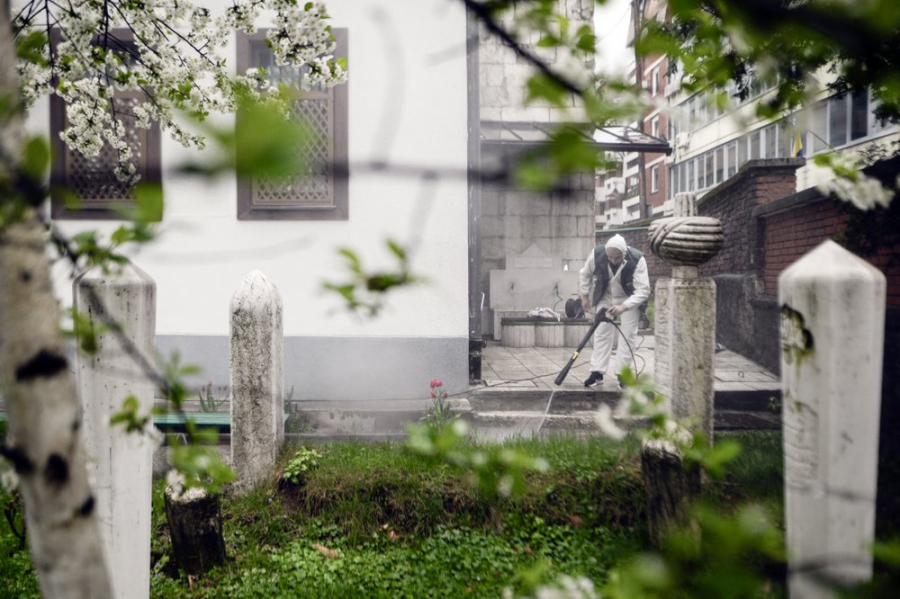
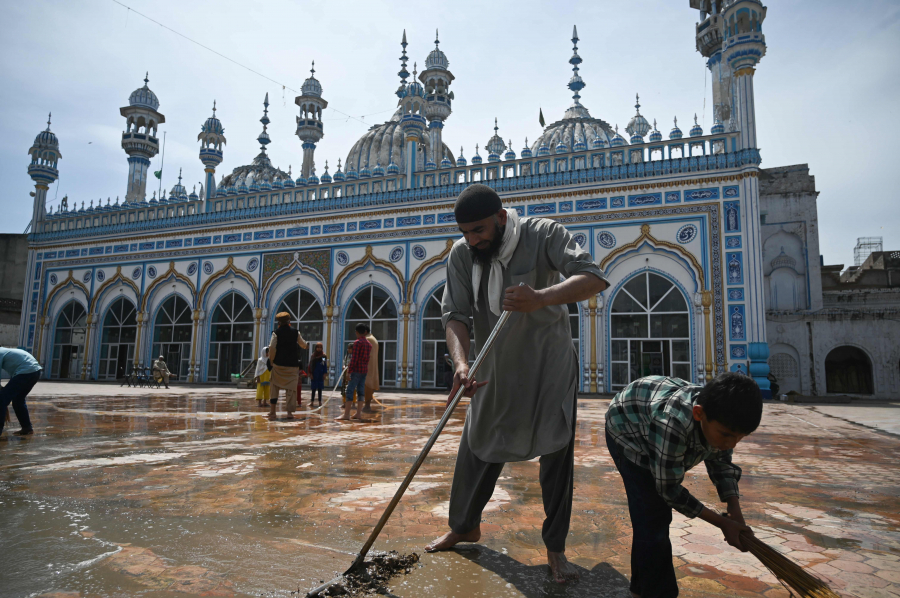
Mosques are cleaned and disinfected before Ramadan.
Thus, the Muslim fasting month of Ramadan begins this week worldwide without the usual large gatherings at mosques or public places. Muslims are permitted to observe their obligatory religious rituals, but must still ensure that they do not spread Covid-19.
Jihan Salama and her family in Cairo, Egypt's capital, are preparing to celebrate Ramadan at home. She says, “Unfortunately, everyone has to stay home right now. If this continues, it will certainly be the strangest Ramadan that Islam and all Muslims have ever experienced.” At Cairo's street markets, traditional lanterns lie unused. Few people have a reason to buy them when there's a nighttime curfew, mosques are closed, and communal prayers are banned.
In Jerusalem, decorative lights are being hung along the streets, but the once bustling Arab markets are now eerily quiet.
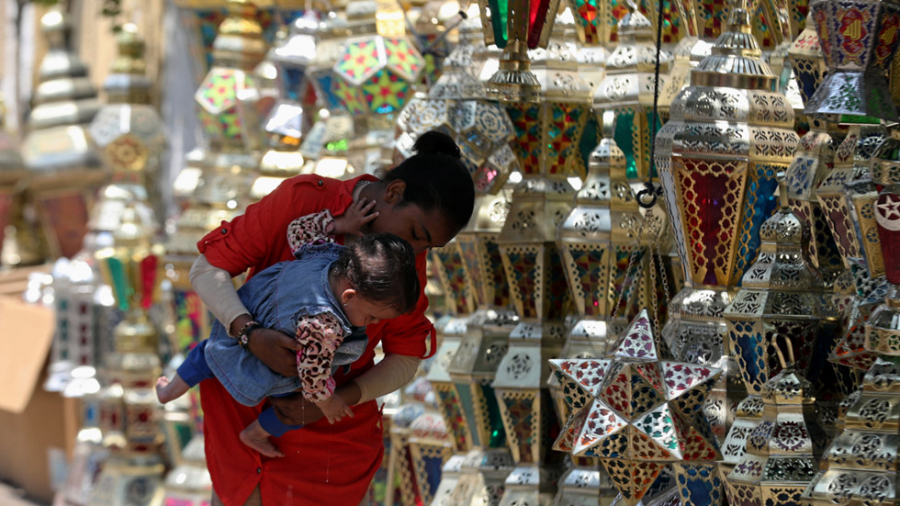
An Egyptian woman carries her child as she walks past a stall selling traditional Ramadan lanterns in Cairo on April 12.
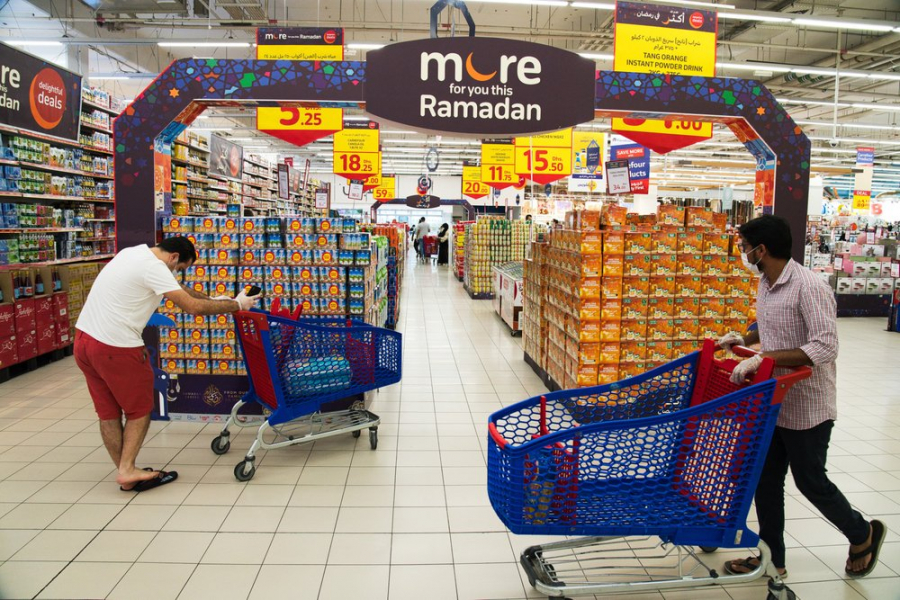
People shop to prepare for Ramadan at a Carrefour supermarket in Dubai, UAE on April 19.
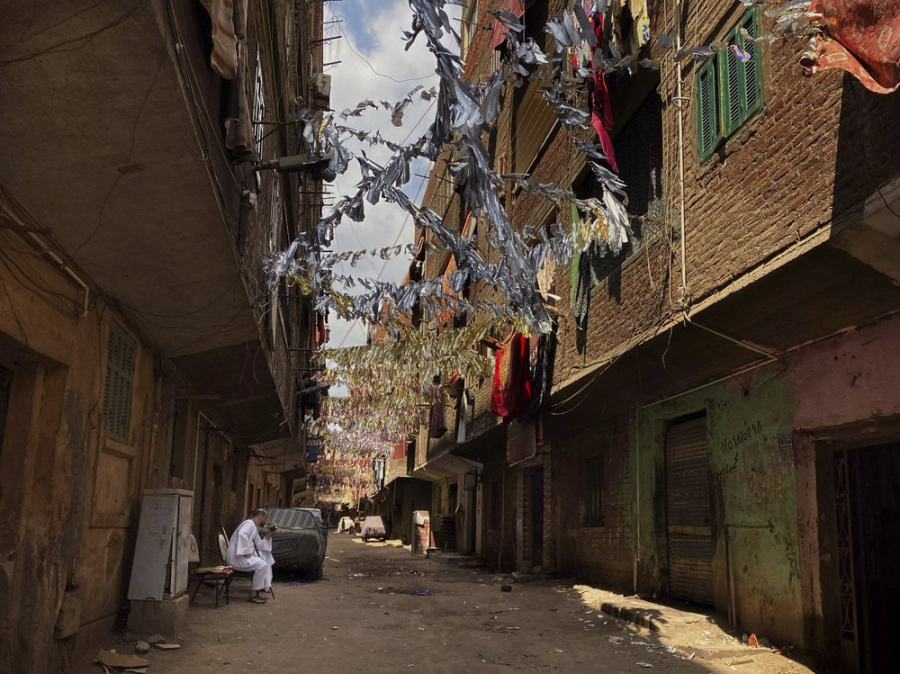
Ramadan decorations hang on a street under lockdown after a family there tested positive for Covid-19, in Bahtim, Shubra el-Kheima neighborhood, Qalyoubiya province, Egypt.
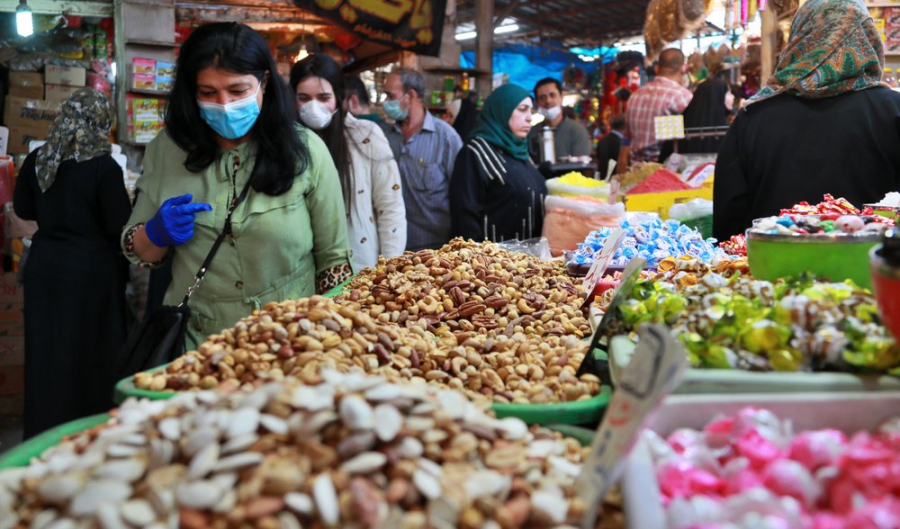
People shop in preparation for the holy month of Ramadan in Baghdad, Iraq, on April 21.
Meanwhile, Saudi Arabia has implemented lockdowns in the holy cities of Mecca and Medina. Authorities have suspended pilgrimages to the holy sites this year, closed most public places, and severely restricted the movement of citizens. Saudi Arabia insists it is particularly concerned about the safety of pilgrims and is providing care for 1,200 pilgrims stranded there due to the Covid-19 pandemic.
In Indonesia, the world's most populous Muslim-majority country, Muslims have been urged to stay home during Ramadan, while millions of civil servants, soldiers, and police officers are prohibited from returning home for Eid al-Fitr – the holiday marking the end of Ramadan. "Fear of the coronavirus has prevented us from celebrating Eid with our loved ones," said a social worker in Jakarta. Meanwhile, in Malaysia, the bustling bazaars, usually bustling during Ramadan, have been closed.
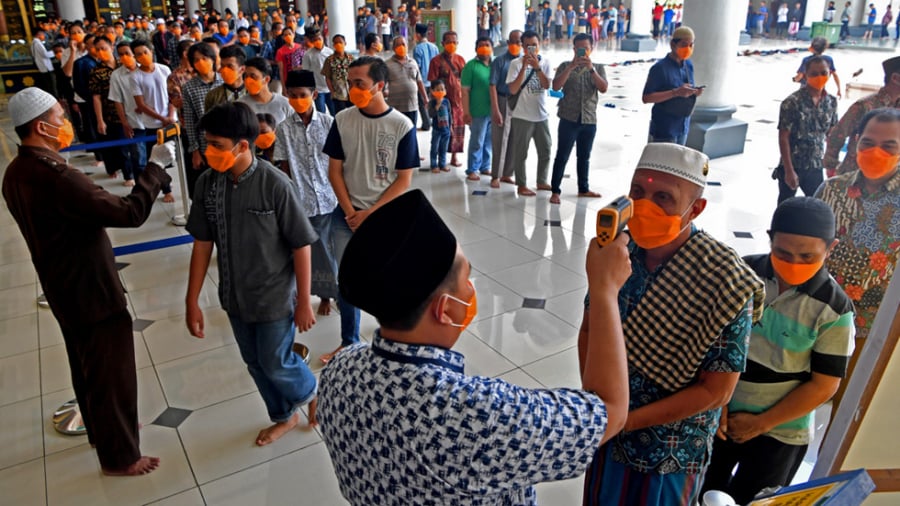
Indonesian citizens have their body temperature checked before entering a mosque in Surabaya, East Java province, Indonesia, on March 20.
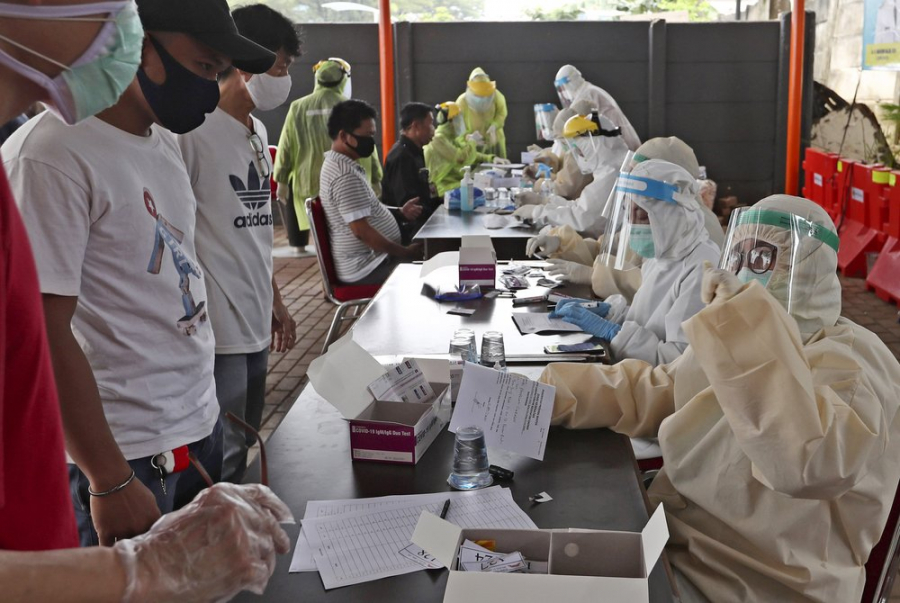
A rapid Covid-19 testing site in Tangerang, Indonesia.
Some countries, such as Lebanon, Syria, Iraq, and Egypt, are attempting to ease lockdown measures so that Muslims can fully observe Ramadan with proper rituals. Accordingly, worshippers will have 30-90 minutes to share a meal together at sunset. People can travel short distances to visit relatives and friends during the holy month. However, all gatherings for meals, prayers, and breaking the fast are prohibited. Additionally, Syria is allowing people to travel to provinces this week, before lockdown measures are reimposed.
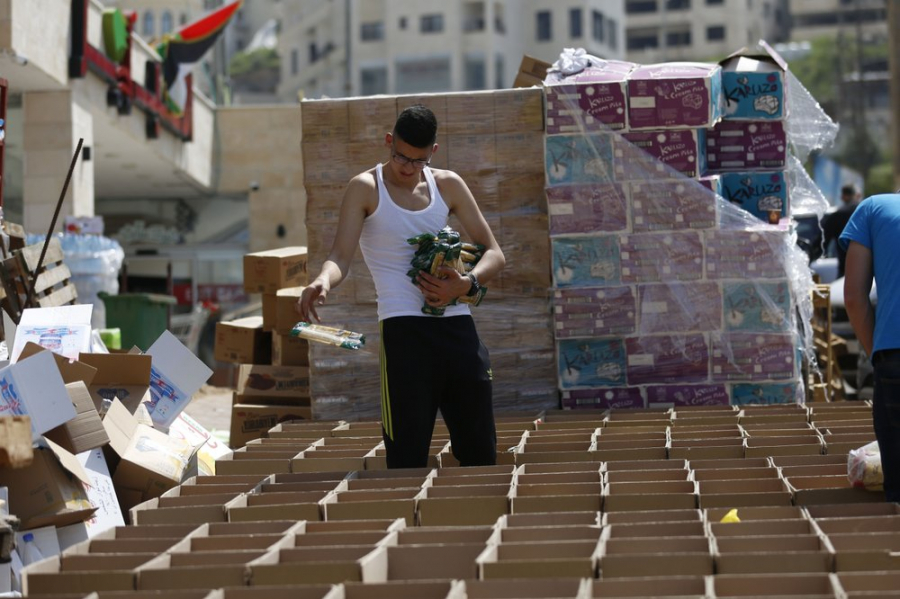
A man living in the city of Nablus in the West Bank packs boxes of food that will be distributed to poor families in Palestine before the Ramadan fasting month.
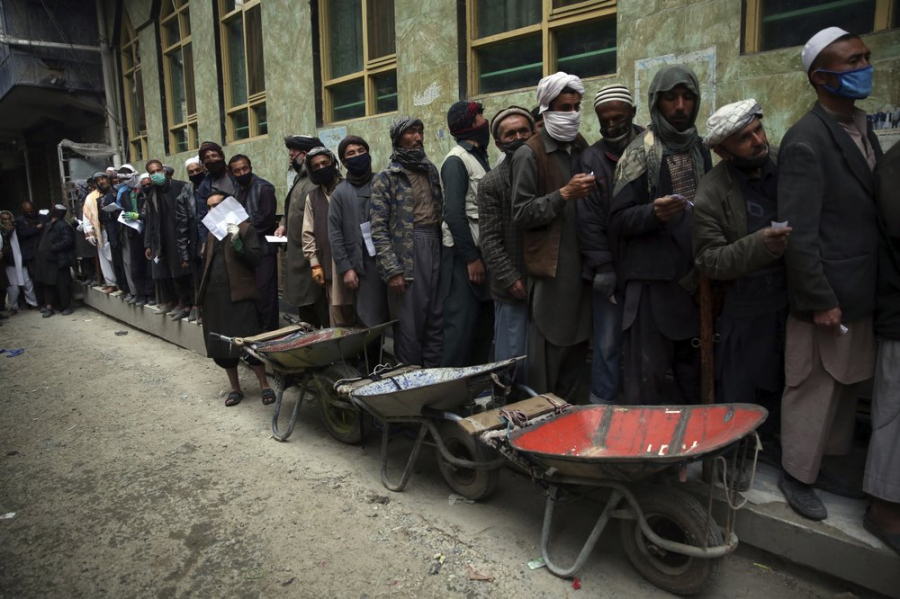
Poor workers line up to receive free wheat ahead of the Ramadan fasting month in Kabul, Afghanistan, on April 20.
In countries with large impoverished populations, mosques and volunteer organizations are still finding ways to deliver food to people amid widespread lockdowns and travel restrictions. In Kashmir, a predominantly Muslim territory still disputed by India and Pakistan, volunteers wearing masks and gloves dropped sacks of rice, flour, lentils, and other essential supplies for Ramadan to those in need in the city of Srinagar. They tried to do so discreetly, so that even neighbors wouldn't know they were receiving help. "We have to think about their self-respect too," said Sajjad Ahmed, a volunteer.
During the annual Ramadan holiday, people in the Gaza Strip typically receive donated goods from Türkiye, Malaysia, Jordan, and other places. But this year, aid has not reached the area. "This time last year, we had three contracts to distribute food to the poor; this year there's nothing," said Omar Saad, spokesperson for the charity Salam.
In Egypt, churches are using their savings to buy food to distribute to impoverished communities or to give money to those in need. "We hope this can alleviate some of the burden they are facing," said Sheikh Abdel-Rahman, a cleric at Bahtim, Egypt.
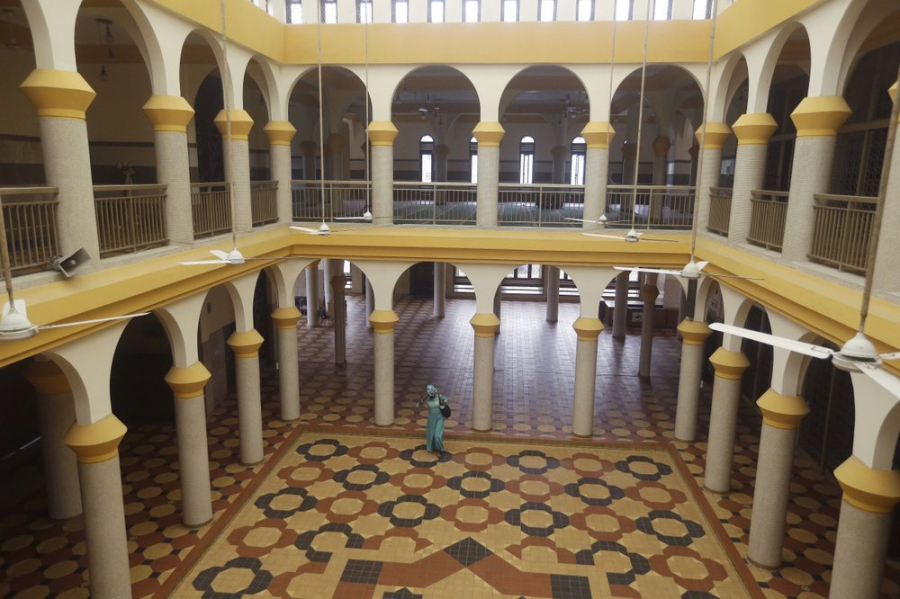
The central mosque in Lagos, Nigeria, is almost deserted after the government banned all religious activities for four weeks following the confirmation of the first Covid-19 case.
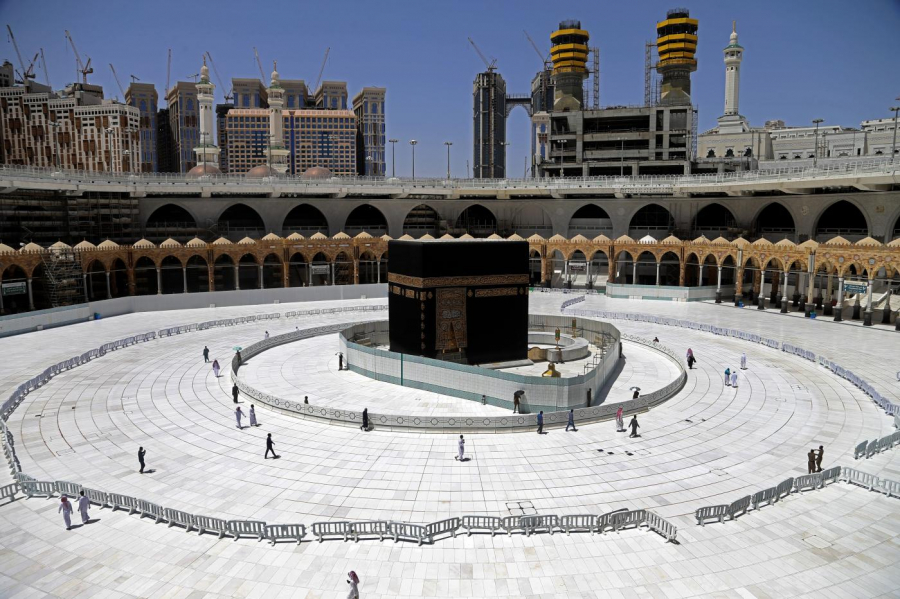
The Black Stone, the sacred stone at the Islamic holy site of Mecca, is usually packed with pilgrims at this time of year.
In Pakistan, some influential Muslim clerics have pressured the government to keep mosques open throughout Ramadan, such as Mullah Abdul Aziz of the Red Mosque in Islamabad, who ordered worshippers to pray together shoulder to shoulder. However, clerics in the Arab world have urged people to pray at home. Zaheer Abbas, a Muslim, said, "I heeded the call on TV. Prayer is prayer. God isn't only present in mosques."

 VI
VI EN
EN



